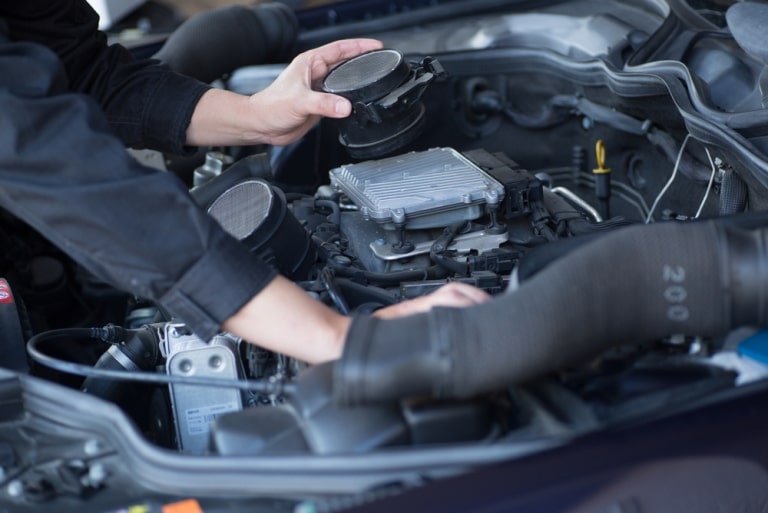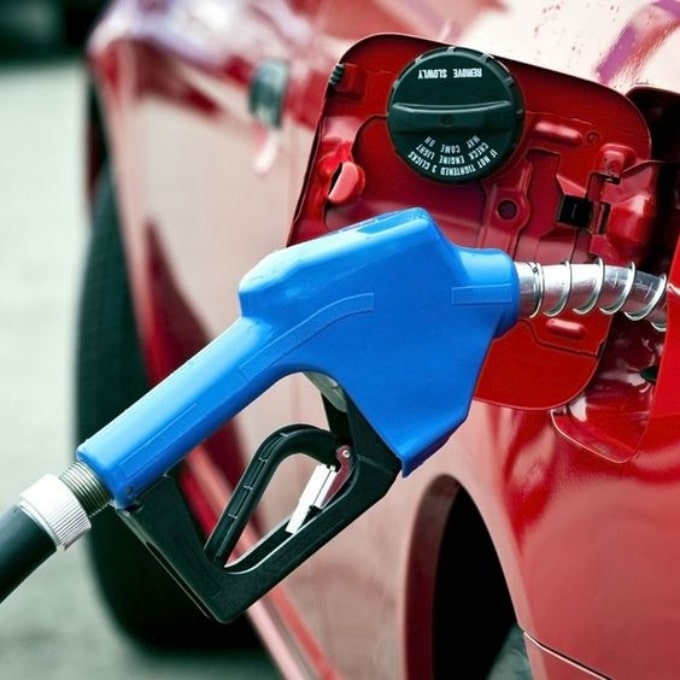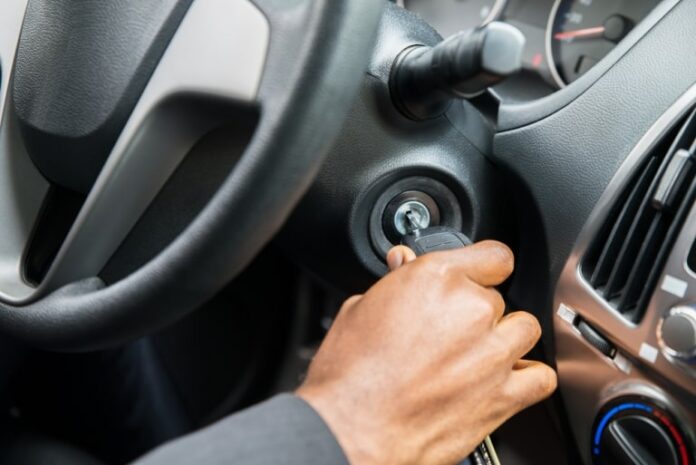As you start your car’s engine, you distinctly make out the dreaded click click click noise. At this point, everyone’s probably heard it, but what could it mean?
There could be a lot of reasons, from battery issues and defective fuel quality to a faulty engine sensor or alternator. Fortunately, there’s usually a fix for each issue.
I’ve had my fair share of car stutters, mostly battery and filter-related, but after a few steps, my car was back up and running.
Stick around to learn more about why your car is hesitating and some fixes.
Possible Reasons Why Your Car Is Hesitating to Start
Some of the most common causes that your car takes a while to start are a faulty battery, loose connection, malfunctioning starter motor, or an issue with the engine sensors.
Read on to know which problem sounds the most familiar to your case and find a possible solution.
Battery Issues
A battery issue is one of the most likely reasons your car hesitates to start. Your car battery could be dead, or there’s a loose connection.
That said, a battery works by cranking your car’s engine. As the battery gets older, its cranking amps gradually decrease, especially if you live in a cold area.
To check, you’ll want to look at your battery terminals. Ensure that there are no signs of corrosion or dirt. Otherwise, it can mess with the battery’s functionality. If it needs to be cleaned, go over it with a baking soda-water solution or wire brush.
Then, grab a voltmeter to check the battery’s voltage levels. If it reads above 12.6 volts, your battery is full. Anything below 12.4 volts means that it might be discharged.
In cases of loose connections, you’ll want to make sure all the connections are tight. In short, they include the posts, terminals, and cables that connect the battery to the alternator and starter.
Defective Fuel Quality
Fuel quality can heavily impact your car’s functions. I’ve had my bouts with sketchy gas stations and paid the price later. Contaminated fuel can potentially damage the engine and fuel system in your vehicle.
In turn, it can cause issues in spark plugs and fuel injectors. You can resolve the issue by pouring a detergent-based additive that’ll get rid of deposits and maintain your injectors’ quality. To prevent the issue, you’ll want to go to gas stations that provide a higher-quality fuel option.
Faulty Engine Sensor

A malfunctioning engine sensor can pump too much or too little fuel into your engine as you turn your key. Subsequently, the car will either release a lean or rich air-fuel mixture. A lean mixture means that the amount of air in the engine succeeds the fuel, and the opposite holds for the rich mixture.
Now, the sensors in your car might be the culprit behind the startup issues. There are the Mass Air Flow (MAF) and throttle body sensors. The MAF notifies the vehicle’s ECU or engine management system of the amount of air entering the engine.
If it’s not working or becomes too dirty, it’ll give an inaccurate reading to the ECU. To clean it, you can find the MAF in the air intake.
In the best-case scenario, you’ll only need to clean the sensor, and it’ll function normally. If not, then you might have to replace it.
Besides that, the throttle body position sensor controls the amount of airflow that comes from the throttle valve. Like the MAF, if it doesn’t work, the ECU won’t get an accurate ratio of air-to-fuel that enters the engine, and your car won’t start.
Starter Issues
If your car runs but takes a while to start, you might have a starter issue. The starter part is responsible for triggering the engine to start and is attached to the car’s battery. You can make sure it’s a starter issue if you hear a distinct clicking noise after starting the car.
Some possible solutions for this issue can be as simple as lessening the load on your car keys by removing extra keys or keychains.
If that doesn’t work, you can try tapping the motor to adjust the electrical contacts. If all else fails, I highly suggest getting the starter motor bench tested. In this case, it’s best to leave it to a mechanic.
Alternator Problems
An alternator’s key role is to convert your car’s mechanical energy to usable electrical energy to power its battery. Consequently, if the alternator doesn’t work, your battery won’t be charged. To ensure that it’s an alternator issue, start the car, and if it cuts off right after, it’s likely the cause.
Alternatively, you can use a multimeter to test the alternator. Turn the engine off and read the voltage. Then, turn the engine on and retest it. If it’s lower than when it’s off, your alternator is the culprit.
In some cases, you might notice a burning smell coming from the alternator. If it’s overheated, a trip to the mechanic is necessary.
Blocked Fuel Filter

A fuel filter makes sure that no debris or contaminants reach the injectors. Without regular maintenance, the dirt will add up and clog the fuel system.
When blocked, your car won’t necessarily stop running, but it’ll take longer to start. That said, you can replace the fuel filter by following the steps below:
- Find the fuel filter, which could be inside the fuel tank, between the fuel pump and tank, or under the car’s hood.
- Take out the fuel pump fuse to lessen fuel system pressure and prevent fuel spray.
- To avoid sparks, remove the negative battery terminal.
- Put a drip pan under the fuel filter in case any excess fuel pours out.
- Grab a wrench and carefully loosen the fitting between the fuel lines attached to the filter.
- Unlatch the old fuel filter from the mounting bracket.
- Attach the new fuel filter, ensuring that the flow direction is correct.
- Rejoin the fuel linings and tighten them.
- Reconnect the fuel pump fuse and negative battery terminal.
- Start the car and examine the area for any leakage. If there’s any, turn off the car and tighten the fuel linings once more.
You’ll likely only need to replace the fuel filter every two years or after driving 24,000 miles. You can go back to your owner’s manual to double-check maintenance requirements.
Blocked Air Filter
Similar to a fuel filter, if your air filter is clogged, your car will hesitate to start. Your engine needs the right combination of air and fuel to work. With a blocked air filter, that balance is tested.
Here’s how you can replace your air filter:
- Locate the air filter under the car’s hood. It looks like a black plastic container with a large hose attachment.
- Detach the filter’s cover, making sure all the wiring and hoses aren’t moving around too much.
- Take out the old filter. Make sure you remember how it was lodged in the first place
- In place of the filter, you’ll likely notice lots of dust accumulated. Use a vacuum to clean the debris.
- Place the new filter in place of the old one and check that it’s sealed correctly.
- Reattach the cover and close the hood.
For the best car performance, change your air filter annually or every 12,000 to 15,000 miles.
Faulty Spark Plug
The spark plug is part of your car’s ignition system. The signs I’ve noticed whenever I had a fouled spark plug were misfires and rough idles.
In these cases, you’ll want to inspect them. If they’re corroded or damaged, it’s time to get a replacement.
Faulty Fuel Pressure Regulator
Next on the list of possibilities is a faulty fuel pressure regulator. If your fuel pump isn’t producing enough pressure, your car will hesitate.
In turn, you can check for this issue by turning the ignition and listening closely for a humming sound. If it doesn’t come, your fuel pump isn’t functioning properly and needs to be replaced.
To Conclude
If your car hesitates to start, the problem could be as minor as a dirty air or fuel filter or as serious as a faulty alternator. Either way, I highly recommend a mechanic’s help.
Additionally, performing regular maintenance checks can save you a world of trouble, especially during those late mornings when you have to get to work.
